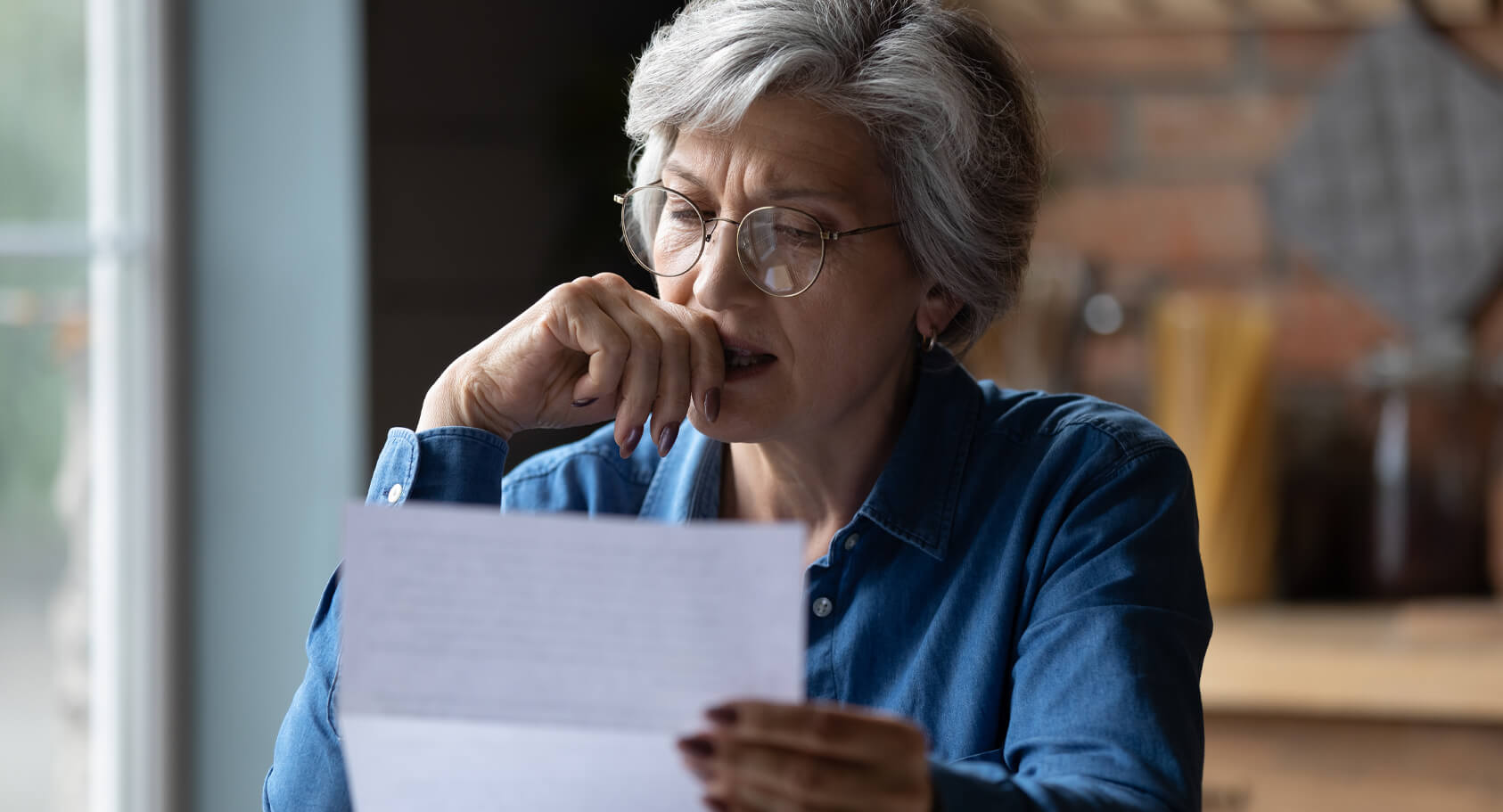IVA vs Bankruptcy – which is right for you?
Having unsecured debts is a position that no one wants to be in. Whatever your financial situation, it’s stressful being contacted by debtors and collectors. There’s no need to put yourself under extra stress, though; here at IVA Helpline, we can advise you on the debt solutions available.
Both IVAs and bankruptcy are potential options if you owe money that you’re unable to pay off.
This guide will take you through everything you need to know about IVAs and bankruptcy. Before weighing up the pros and cons of each of these formal debt solutions, we’ll explain what they are and their impact on your life.
Understanding individual voluntary arrangements and bankruptcy will allow you to make an informed decision about your finances. Get in touch with IVA Helpline on 0800 464 7235 today for confidential debt advice that will help you move towards a debt-free future.

Go to …
- What Is An IVA (Individual Voluntary Arrangement)?
- What Is Bankruptcy?
- Advantages Of An IVA
- Drawbacks Of An IVA
- Advantages Of Bankruptcy
- Drawbacks Of Bankruptcy
- IVA vs Bankruptcy: For Business Owners
- IVA vs Bankruptcy: For Home Owners
- IVA vs Bankruptcy: Impact On Employment
- Which Debt Solution Should You Choose?
- Get In Touch With IVA Helpline For IVA And Bankruptcy Advice
What Is An IVA (Individual Voluntary Arrangement)?
An IVA- an individual voluntary arrangement- is a legally binding agreement, agreed upon by an insolvency practitioner between you and your creditor/s.
Whatever your income and assets, it allows you to pay off your debt in manageable monthly chunks.
Usually, an IVA lasts for five years, with an option for a 12-month extension. Over this period, you pay back the entirety of what you owe, while any interest or charges on your debt is frozen. Debtors cannot contact you during this period, as you’re making regular payments towards your debt.
Check if you qualifyWhat Is Bankruptcy?
Bankruptcy is a formal debt solution available to those with unpayable debts. The bankruptcy process takes an average of 12 months but can take up to three years in total.
Rather than an insolvency practitioner, bankruptcy is carried out by an official receiver who works for the Insolvency Service to monitor the process. After handing over any assets or property, your debts get struck, freeing you up for a completely fresh start.

Call us on 0800 464 7235
Our trained advisors are here to help, so if you think an IVA proposal is one of the best debt solutions for you, don’t hesitate to call us on 0800 464 7235 to speak to one of our trained debt advisors or click below to see if you qualify…
Check if you qualifyAdvantages Of An IVA
IVAs are a popular debt solution because they have several benefits. Here are just some of the advantages of taking out an IVA with an insolvency service to pay off your debt:
Drawbacks Of An IVA
Advantages Of Bankruptcy
Bankruptcy may be a good solution if your debt cannot realistically be paid off with an IVA. Here are some of its benefits:
Drawbacks Of Bankruptcy
There are some situations in which bankruptcy isn’t a great solution. Here are some of the drawbacks you can expect when declaring bankruptcy:
IVA vs Bankruptcy: For Business Owners
If you’re a business owner, here is how an IVA will affect you:
Bankruptcy, on the other hand, will affect your business differently:
IVA vs Bankruptcy: For Home Owners
Here are the IVA implications that homeowners must consider:
If you’re a homeowner, bankruptcy can affect your property in these ways:
IVA vs Bankruptcy: Impact On Employment
In some select circumstances, entering into an IVA can affect your job:
Bankruptcy, on the other hand, can have a marked impact on your employment:
Conclusion – Which Debt Solution Should You Choose?
Your chosen debt solution entirely depends on your situation. Although bankruptcy’s social stigma may put you off, both IVAs and bankruptcy are paths forward out of your debt, and towards a fresh start.
When determining which debt solution is the best pick for you, consider the implications of both plans, as discussed above.
Determine how your home, assets or business may be affected by both an IVA and bankruptcy. Reflect on your income and your ability to make regular payments. Are you in a position to pay a monthly sum toward what you owe, or do you have any assets which can go towards paying off your debt?
You should consider opting for an IVA if…
You should consider bankruptcy if…
Get In Touch With IVA Helpline For IVA And Bankruptcy Advice
Trying to weigh up your options can be stressful, especially if you’re unfamiliar with the debt solutions available to you.
If you’re still struggling to determine the best path forward, get in touch with IVA Helpline today. We provide confidential, professional debt advice, including information about individual voluntary arrangements and bankruptcy proceedings.
Whatever situation you’ve found yourself in, call us on 0800 464 7235. Our expert advisers can help you to sort out your finances, whether that means declaring bankruptcy or entering into an individual voluntary arrangement. Within no time, we’ll help you to figure out the route towards a debt-free future!
Frequently asked questions
-
Will an IVA or bankruptcy have a bigger impact on my credit file?
Because you’ll be listed on the Insolvency Register, an IVA will affect your ability to obtain credit for the duration of the agreement. This is usually 5 or 6 years. After this period, you will be removed from the register, and your credit will recover after you pay the agreed amounts.
A bankruptcy will have a bigger impact on your credit because it can have a negative effect for up to six years from your declaration (even once the proceedings are finished). It can cause you trouble when trying to open a new bank account, as well as getting a mortgage or renting property for years after your bankruptcy.
-
Are there risks involved with declaring bankruptcy?
There are 3 main risks associated with declaring yourself bankrupt. Bankruptcy can have an impact on your:
Assets: If you have assets, which includes everything from home equity to personal savings, you can expect these to be seized as part of the repayment process.
Employment: If you’re a business owner, your business will be shut down immediately. If you work in a regulated profession (such as law, banking or accountancy), you can be disqualified as a member of the professional body.
Credit rating: Bankruptcy will make it very difficult to obtain credit for the next six years. Even after your proceedings are finished, you may find it hard to open a bank account or even rent property as a tenant.
-
Can I lose my home with an IVA?
Because assets are not usually included in IVAs, you won’t have your home seized as part of an individual voluntary agreement.
After the initial five year period of your IVA, you may be asked to remortgage your home to make further payments. However, this won’t happen if you can’t afford it, so you don’t need to worry about losing your home with an IVA.
-
How can I find a reliable insolvency practitioner?
The UK Government’s website (GOV.UK) has a list of authorised insolvency practitioners who can set up an IVA for you.
Alternatively, you can get in touch with your local Official Reciever’s office – contact details can be accessed on the GOV.UK website.
For more advice about finding insolvency practitioners, head over to the Citizens’ Advice website.
Prefer to talk? We’re ready to listen and help you
Get Help Online
Answer a few simple questions and one of our experts will get in touch.
Get Help OnlineSend us an email
Use our online form to get in touch and we’ll respond as soon as we can.
Send email


